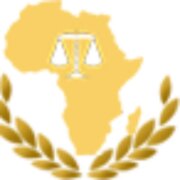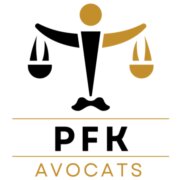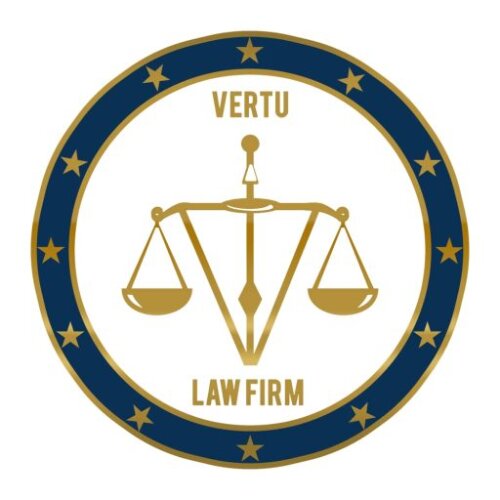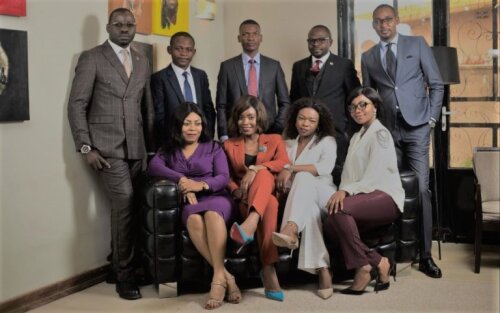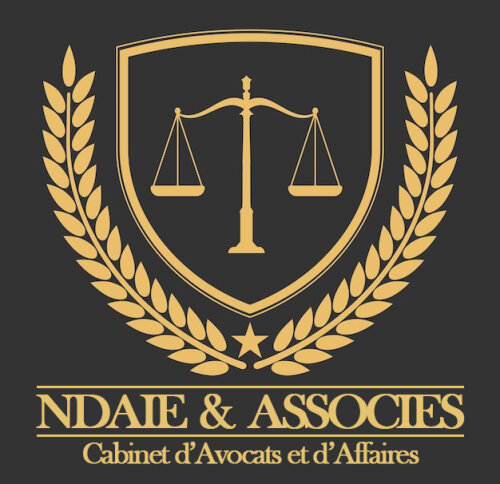Best Natural Resources Lawyers in DR Congo
Share your needs with us, get contacted by law firms.
Free. Takes 2 min.
Or refine your search by selecting a city:
List of the best lawyers in DR Congo
About Natural Resources Law in DR Congo
The Democratic Republic of the Congo (DR Congo) is one of the most resource-rich countries in the world, endowed with vast reserves of minerals such as cobalt, copper, diamonds, gold, and coltan. Agriculture, forestry, and hydropower are also crucial components of the country's natural resource landscape. The exploitation of these resources plays a significant role in the national economy but also poses complex legal challenges.
Natural Resources Law in DR Congo encompasses regulations related to the exploration, extraction, management, and conservation of these valuable resources. This legal framework aims to balance economic development, environmental protection, and the rights of indigenous communities.
Why You May Need a Lawyer
Seeking legal advice in the field of Natural Resources in DR Congo can be crucial in several situations:
- Understanding and navigating complex mining regulations for companies planning to invest or extract resources.
- Dealing with land disputes, often arising between international companies and local communities.
- Addressing environmental compliance issues, including the impact of resource exploitation on ecosystems and communities.
- Resolving contract disagreements between joint venture partners or service providers.
- Protecting the rights of indigenous peoples and local communities affected by resource extraction activities.
Local Laws Overview
The legal framework governing Natural Resources in DR Congo includes:
- The Mining Code: Establishes requirements for mineral exploration, exploitation rights, and environmental management.
- The Forest Code: Governs the conservation, management, and utilization of forests and forest resources.
- Environmental Law: Provides guidelines for environmental protection and sustainable development practices.
- Land Rights: Involves customary and statutory systems, often leading to legal pluralism and complications.
Understanding these laws is critical for anyone involved in the natural resources sector, whether for business operations or community advocacy.
Frequently Asked Questions
What types of natural resources are most abundant in DR Congo?
DR Congo is primarily known for its mineral wealth, including cobalt, copper, diamonds, gold, and coltan. The country also has significant forest reserves and water resources.
Can foreign companies invest in DR Congo's natural resources?
Yes, foreign companies can invest in DR Congo's natural resources, but they must comply with local regulations, including obtaining permits and adhering to environmental and social guidelines.
What are the primary environmental concerns associated with resource extraction in DR Congo?
Key concerns include deforestation, pollution, loss of biodiversity, and the displacement of local communities.
How are indigenous rights protected in the context of natural resource extraction?
DR Congo's laws include provisions for recognizing and protecting the rights of indigenous peoples, though enforcement can be challenging. Legal assistance may be required to advocate for these rights effectively.
What steps are involved in obtaining a mining license in DR Congo?
The process involves obtaining a Prospecting Permit, followed by an application for a Research Permit and subsequently an Exploitation Permit upon discovering viable minerals.
Are there any tax incentives for companies investing in natural resources?
The government provides various tax incentives to encourage investment, particularly during the initial phases of resource exploration and development, but these are subject to change and should be reviewed with legal counsel.
What role does the Congolese government play in the natural resources sector?
The government regulates the sector through laws and agencies to enforce compliance, issue permits, and collect revenues.
How can environmental damage from resource extraction be mitigated?
Through strict adherence to environmental management plans, regular audits, and engaging with local communities to ensure sustainable practices.
What is the process for resolving disputes related to natural resources?
Disputes can be resolved through legal channels such as arbitration, mediation, or litigation, depending on the specifics of the conflict.
How does one ensure compliance with local laws while operating in this sector?
Ensuring compliance involves thorough legal due diligence, regular consultations with legal experts, and active engagement with regulatory agencies.
Additional Resources
For those seeking more information or assistance, the following resources can be invaluable:
- Ministry of Mines of the Democratic Republic of the Congo
- Environmental Protection Agency, DR Congo
- Local Chambers of Commerce and Industry
- Non-Governmental Organizations (NGOs) focused on environmental and indigenous rights
- International finance institutions and their local offices
Next Steps
If you require legal assistance in the field of Natural Resources, consider the following steps:
- Identify your specific needs, whether it pertains to investment, compliance, dispute resolution, or advocacy.
- Contact a lawyer specialized in Natural Resources Law and familiar with DR Congo's regulations.
- Prepare relevant documentation related to your case or interest, such as contracts, permits, and correspondence.
- Engage with local communities and stakeholders to garner support and insight into local practices and expectations.
By taking these steps, you can effectively navigate the complexities of Natural Resources Law in DR Congo and advance your interests responsibly and lawfully.
Lawzana helps you find the best lawyers and law firms in DR Congo through a curated and pre-screened list of qualified legal professionals. Our platform offers rankings and detailed profiles of attorneys and law firms, allowing you to compare based on practice areas, including Natural Resources, experience, and client feedback.
Each profile includes a description of the firm's areas of practice, client reviews, team members and partners, year of establishment, spoken languages, office locations, contact information, social media presence, and any published articles or resources. Most firms on our platform speak English and are experienced in both local and international legal matters.
Get a quote from top-rated law firms in DR Congo — quickly, securely, and without unnecessary hassle.
Disclaimer:
The information provided on this page is for general informational purposes only and does not constitute legal advice. While we strive to ensure the accuracy and relevance of the content, legal information may change over time, and interpretations of the law can vary. You should always consult with a qualified legal professional for advice specific to your situation.
We disclaim all liability for actions taken or not taken based on the content of this page. If you believe any information is incorrect or outdated, please contact us, and we will review and update it where appropriate.
Browse natural resources law firms by city in DR Congo
Refine your search by selecting a city.





